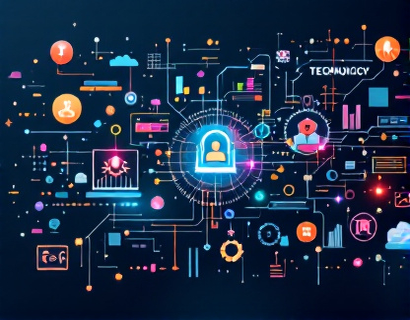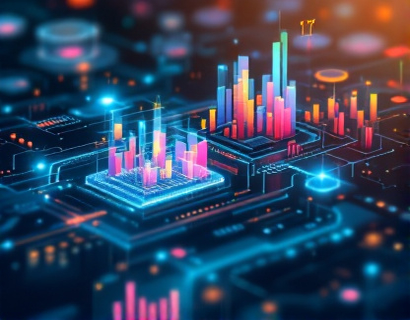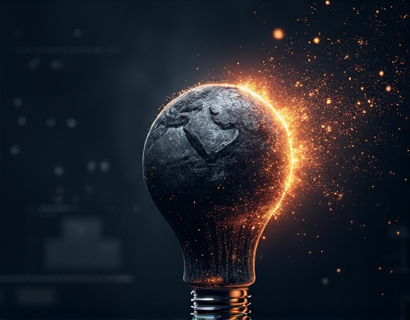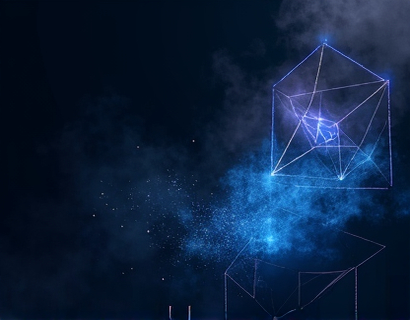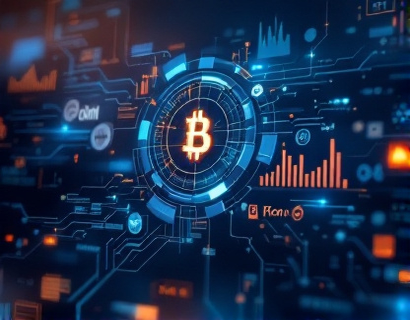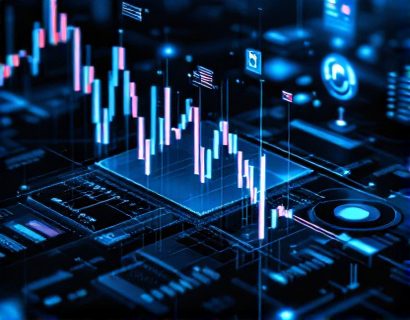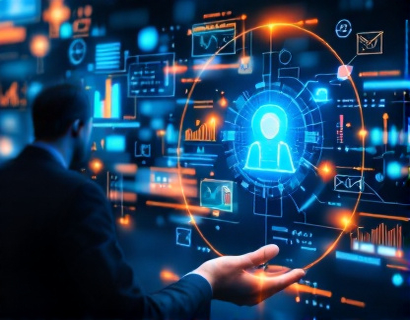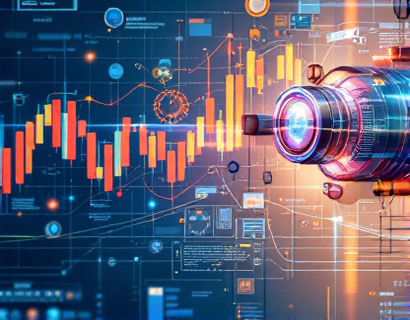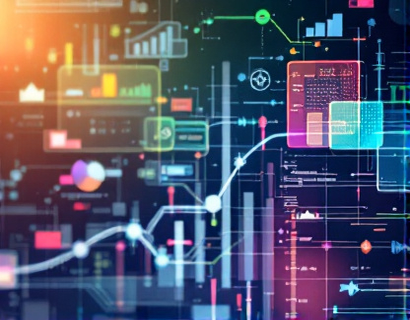AI and Blockchain: Catalysts for Next-Gen Digital Transformation in App Ecosystems
The intersection of artificial intelligence (AI) and blockchain technology is ushering in a new era of digital transformation, particularly within app ecosystems. This fusion is creating seamless, efficient, and secure digital solutions that are redefining user experiences and enhancing connectivity in the digital age. For tech enthusiasts and early adopters, understanding the dynamics of this transformative combination is crucial. This article delves into the intricate ways AI and blockchain are reshaping the landscape of digital interactions and the unified digital ecosystem.
The advent of blockchain technology has brought about a paradigm shift in how data is managed and transactions are conducted online. Blockchain's decentralized and immutable nature ensures transparency, security, and trust in digital interactions. When combined with AI, which excels in processing vast amounts of data and learning from patterns to make intelligent decisions, the potential for innovation becomes immense. Together, these technologies are paving the way for next-generation app ecosystems that are more intelligent, secure, and user-friendly.
Enhanced Security through Blockchain
One of the most significant contributions of blockchain to app ecosystems is enhanced security. Traditional centralized systems are vulnerable to hacking and data breaches, as they rely on a single point of control. Blockchain, with its distributed ledger technology, eliminates this vulnerability by distributing data across a network of nodes. Each transaction is verified and recorded in a block, which is then added to the chain in a cryptographic manner. This makes it extremely difficult for malicious actors to alter or manipulate data without detection.
In app ecosystems, this means that user data and transactions are protected against unauthorized access and tampering. For instance, identity verification processes can be significantly strengthened using blockchain. Users can control their identity data through private keys, ensuring that only they can grant access to their information. This not only enhances security but also gives users greater control over their personal data.
AI-Driven Efficiency and Personalization
AI plays a pivotal role in optimizing the efficiency and personalization of app ecosystems. Machine learning algorithms can analyze vast amounts of user data to identify patterns and preferences, enabling apps to provide tailored experiences. For example, recommendation engines in e-commerce platforms use AI to suggest products based on a user's browsing and purchase history. This not only improves user satisfaction but also increases engagement and conversion rates.
Moreover, AI can automate routine tasks within apps, reducing the need for manual intervention and freeing up resources for more complex tasks. Chatbots powered by natural language processing (NLP) can handle customer inquiries, provide support, and even assist in transaction processes. This not only enhances user experience but also reduces operational costs for app providers.
Decentralized Applications (DApps)
A prominent manifestation of the AI and blockchain fusion is the rise of decentralized applications, or DApps. Unlike traditional applications that run on centralized servers, DApps are built on blockchain networks and operate autonomously. This decentralization brings several advantages. First, DApps are less susceptible to censorship and downtime, as there is no single point of failure. Second, they can leverage smart contracts, which are self-executing contracts with the terms directly written into code. Smart contracts automate and enforce agreements without the need for intermediaries, reducing costs and increasing trust.
AI enhances DApps by providing intelligent and adaptive functionalities. For instance, AI can be used to optimize the performance of smart contracts, ensuring they execute efficiently and securely. Additionally, AI-driven analytics can help DApp developers understand user behavior and preferences, enabling them to continuously improve and innovate their applications.
Tokenization and Incentivization
Blockchain technology introduces the concept of tokenization, which involves representing assets or utilities as digital tokens on a blockchain. In app ecosystems, tokens can serve various purposes, from facilitating transactions to incentivizing user participation. For example, a social media platform can issue tokens to users for contributing content or engaging with the community. These tokens can then be used to access premium features or traded within the platform's ecosystem.
AI can further enhance tokenization by predicting user behavior and optimizing token distribution strategies. Machine learning models can analyze user interactions to identify high-value contributors and reward them appropriately. This not only fosters a more engaged and active user base but also creates a self-sustaining ecosystem where value is generated and distributed efficiently.
Interoperability and Cross-Chain Solutions
As the number of blockchain networks grows, the need for interoperability becomes increasingly important. AI can play a crucial role in developing cross-chain solutions that enable seamless communication and asset transfer between different blockchain platforms. By leveraging AI algorithms, developers can create protocols that automatically translate and execute smart contracts across multiple chains, breaking down silos and fostering a more interconnected digital ecosystem.
This interoperability is essential for the growth of app ecosystems, as it allows for the integration of diverse services and applications. Users can enjoy a more cohesive and versatile digital experience, with the ability to interact with a wide range of apps and services without the constraints of specific blockchain networks.
Privacy and Anonymity
Privacy and anonymity are critical concerns in the digital age, and the combination of AI and blockchain offers robust solutions. Blockchain's inherent transparency can be balanced with privacy-enhancing technologies such as zero-knowledge proofs, which allow transactions to be verified without revealing sensitive information. AI can further enhance privacy by developing advanced encryption methods and anomaly detection systems that protect user data from unauthorized access.
In app ecosystems, this means that users can transact and interact with confidence, knowing that their privacy is safeguarded. AI-driven privacy tools can also help app providers comply with regulatory requirements, such as the General Data Protection Regulation (GDPR), by automating data anonymization and access control processes.
Future Prospects and Challenges
The future of app ecosystems powered by AI and blockchain is promising, but it also comes with challenges. One of the primary challenges is scalability. Blockchain networks, particularly those using proof-of-work consensus mechanisms, can struggle with high transaction volumes and slow processing times. AI can assist in optimizing blockchain performance by predicting network congestion and dynamically adjusting resource allocation.
Another challenge is the regulatory landscape. As AI and blockchain technologies evolve, governments and regulatory bodies are beginning to take notice, leading to the development of new laws and guidelines. App ecosystems must navigate this complex environment to ensure compliance while continuing to innovate. AI can help by providing real-time monitoring and compliance tools, alerting developers to potential issues and guiding them through the regulatory process.
Despite these challenges, the potential benefits of integrating AI and blockchain in app ecosystems are vast. The creation of more secure, efficient, and user-centric digital solutions will continue to drive adoption and innovation. As more developers and organizations recognize the synergies between these technologies, we can expect to see a new generation of apps that redefine user experiences and enhance connectivity in the digital world.




